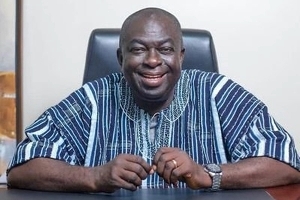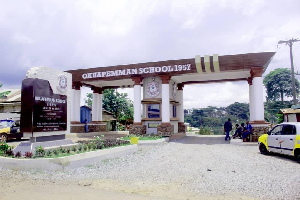Business News of Tuesday, 1 June 2010
Source: GNA
Ghana needs 2.3 billion dollars annually to address infrastructure deficit
Accra, June 1, GNA - Addressing Ghana's infrastructure deficit would require a sustained spending of 2.3 billion dollars annually over 10 years, with more than half the amount allied with the power sector alone, according to recent research findings.
The Africa Infrastructure Country Diagnostic (AICD) 2010 Report further disclosed that Ghana faced a large 1.1 billion dollars efficiency gap per year, even though the country already spent 1.2 billion dollars per annum in infrastructure, a figure that represented a 7.5 per cent of Gross Domestic Product (GDP) in 2009.
Dr Vivien Foster, World Bank Lead Economist for Sustainable Development, Africa Region, disclosed this in Accra on Tuesday at a roundtable conference jointly organised by World Bank and International Labour Organisation (ILO).
It was under the theme: "Africa's Infrastructure: A Time for Transformation with a Case Study on Ghana".
AICD is a project implemented by World Bank under the guidance of a steering committee that represents African Union (AU), New Partnership for Africa's Development (NEPAD), Africa's Regional Economic Communities, African Development Bank (AfDB), Development Bank of South Africa and major infrastructure donors.
The project was designed to expand the world's knowledge of physical infrastructure in Africa and provide a baseline against which future improvements in infrastructure services can be measured, making possible monitoring of results achieved from donor support. Dr Foster said the report indicated that although Ghana appeared to be doing relatively well on water under the Millennium Development Goal, reliability was poor while sanitation lagged far behind. Quoting extensively from the report, she said to keep pace with growing demand and preserve service reliability, Ghana needed to expand low-cost electricity generation capacity and refurbish ageing transmission network. "Ghana has made rapid progress with mobile penetration at reasonably low costs, but more regulatory attention should be given to quality of service," she said.
The AICD has gathered and analysed extensive data covering different areas of infrastructure (information communication technology, irrigation, power, transport, water and sanitation) in a consistent and standardised manner in more than 40 Sub-Saharan countries including Ghana. It was commissioned by the Infrastructure Consortium for Africa following the 2005 G8 summit at Gleneagles, Scotland, which flagged the importance of scaling up finance for infrastructure in support of Africa's development.
Mr Paul Victor Obeng, Chairman of National Development Planning Commission (NDPC), observed that spatial development of infrastructure in the country was weak and called for proactive measures to address the situation.
He called for a 'collision' of private sector and government in terms of public-private sector participation to drive Ghana's infrastructure into a middle-income benchmark.
Mr Obeng expressed hope that the forum would create the platform for participants, drawn from civil society, NGOs, government institutions and private sector, to make meaningful contributions to enable the country realise its vision of attaining a middle-income status by 2020. Mr Charles Boakye, an infrastructure expert from the Institute for Infrastructure Development, Accra, said escalating cost at the power sector was due to factors including poor land use, climate change, pilfering and increasing crime rate, lack of forward planning and obsolete equipments. Others, he identified, included inability to produce basic tools and materials, depreciation of the cedi and lack of capacity on the part of some boards and management to arrest challenges at the energy sector. 1 June 10










